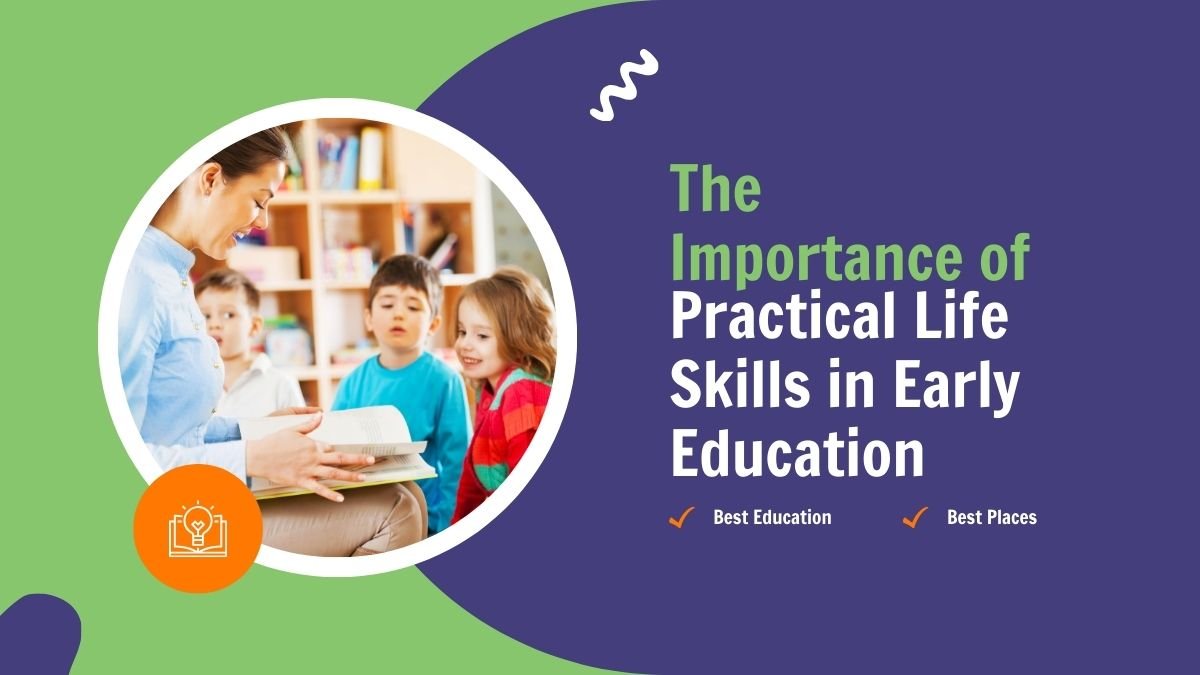The Importance of Key Life Skills for Children
The habits and skills that a child learns early in life form the foundation of everything else that follows. Practical life skills are central to Montessori education. They help children build self-reliance through daily exercises and gradually prepare them for real-life challenges.
These skills influence much more than just day-to-day functioning. They impact a child’s confidence, thinking capacity, problem-solving ability, and even social relationships.
What Are Practical Life Skills?
Practical life skills are simple activities children naturally take interest in, such as:
- Dressing and undressing independently
- Tying shoelaces
- Helping prepare food — cutting salads, pouring drinks
- Doing household chores — sweeping, wiping tables, watering plants
- Personal hygiene — washing hands, brushing teeth, combing hair
Over time, these tasks help children become responsible, caring, and independent individuals.
The Most Important Practical Life Skills
1. Independence and Self-Reliance
When children can put on shoes, pour water, or dress themselves, they no longer need to wait for an adult’s help. These small tasks foster independence and self-reliance.
2. Confidence and Self-Esteem
The pride children feel after completing a task — whether cleaning their room or packing a lunchbox — motivates them to repeat and take on more challenges. Each success builds confidence.
3. Development of Thinking and Understanding
- Concentration: Buttoning clothes requires focus.
- Problem-solving: Spilling water while pouring teaches them to try more carefully next time.
- Logical thinking: Following steps, like buttering bread before adding jam, builds order and reasoning.
4. Physical Development
- Fine motor skills: Activities like threading, buttoning, and pouring strengthen small muscles, preparing children for writing.
- Gross motor skills: Sweeping, lifting buckets, and watering plants improve coordination and overall body movement.
5. Social and Emotional Development
Through sharing toys, cooperating in chores, and teamwork, children learn social interaction. They also develop emotional resilience when facing small daily challenges, such as cleaning spills, which teaches patience and balance.
6. A Freshness in Study
Practical life skills indirectly prepare children for academic success:
- Concentration → strengthens focus for mathematics and reading
- Problem-solving → enhances understanding in science and logic
- Discipline → helps complete homework and projects on time
7. Environment and Sense of Responsibility
Being responsible for watering plants, tidying a room, or caring for a pet instills accountability for self and surroundings.
How Are Practical Life Skills Taught at Home?
Parents play a key role in building these habits. Here’s how:
- Involve your child in daily activities.
- Allow them to work at their own pace without rushing.
- Guide instead of scolding.
- Provide child-sized materials — small dishes, low shelves, or tiny brooms.
Examples:
- Fixing simple snacks — peeling bananas, cutting cucumbers, making sandwiches
- Folding clothes
- Hanging towels after bathing
- Placing shoes back in their basket after playing
Conclusion
Practical life skills are much more than tasks. They shape children into independent, confident, and responsible individuals. They enhance intellectual growth, physical abilities, and social-emotional balance. This is why they hold such importance in the Montessori system.
If you want your child to grow into a balanced individual who can excel academically, handle challenges, and manage responsibilities, start teaching them practical life skills today.








